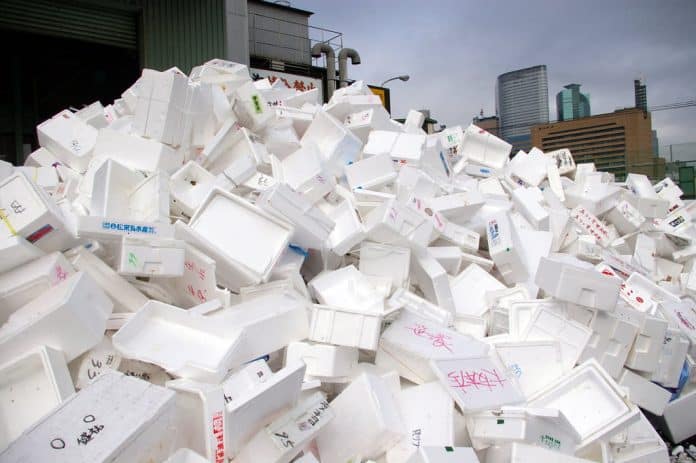The Lagos State Government recently joined the growing list of countries taking a stand against styrofoam.
A growing number of countries are taking a stand and banning styrofoam altogether.
The Lagos State Government recently joined the growing list of countries taking a stand against styrofoam.
Styrofoam, the lightweight yet persistent plastic, has long been a convenient choice for packaging and insulation. Unfortunately, its convenience comes at a significant environmental cost.
Recognising this harm, a growing number of countries are taking a stand and banning Styrofoam altogether.
Here’s a look at some nations leading the charge:
Rwanda:
Africa’s green champion, Rwanda, implemented a complete ban on the production, import, and use of styrofoam in 2009. This comprehensive approach has made Rwanda a global leader in plastic waste reduction.
Denmark:
In 2020, Denmark banned single-use styrofoam food containers, plates, and cups. This ban, combined with existing restrictions on other plastic items, aims to minimize waste and promote sustainable alternatives.
France:
Joining the fight in 2020, France prohibited the use of disposable styrofoam cups, plates, and cutlery in food service establishments. This move targets a significant source of styrofoam waste and encourages the use of reusable alternatives.
India:
In 2018, India’s capital city, Delhi, banned the production, storage, and sale of styrofoam and thermocol items. This ban aims to tackle the city’s growing waste management challenges and promote cleaner alternatives.
Taiwan:
As of 2022, Taiwan has prohibited the use of styrofoam cups, straws, and cutlery in food service establishments and government agencies. This ban marks a significant step towards reducing plastic waste and promoting environmental responsibility.
Thailand:
Following suit in 2022, Thailand implemented a partial ban on styrofoam, phasing out single-use food and beverage containers made from the material. This move aims to reduce plastic pollution and encourage responsible waste management practices.
Dominica:
The Caribbean island nation of Dominica banned the import, sale, and use of styrofoam products in 2019. This comprehensive ban aims to protect the island’s pristine environment and promote eco-friendly alternatives.
Kenya:
East African nation Kenya prohibited the production, import, and use of plastic bags in 2017, and in 2020, expanded the ban to include styrofoam cups, plates, and cutlery. This comprehensive approach tackles multiple plastic pollutants and promotes environmental sustainability.
Seychelles:
This island paradise banned the import and sale of styrofoam and single-use plastic bags in 2014. This early action demonstrates the Seychelles’ commitment to protecting its delicate environment and marine life.
Antigua and Barbuda:
Joining the Caribbean movement in 2016, Antigua and Barbuda banned the import, sale, and use of styrofoam and single-use plastic bags. This initiative aims to safeguard the islands’ natural beauty and encourage responsible tourism practices.
These are just a few of the countries taking a stand against styrofoam. By implementing bans and promoting sustainable alternatives, these nations are paving the way for a cleaner and healthier planet.
As awareness grows and environmental concerns mount, we can expect to see more countries join the fight against this persistent plastic.














